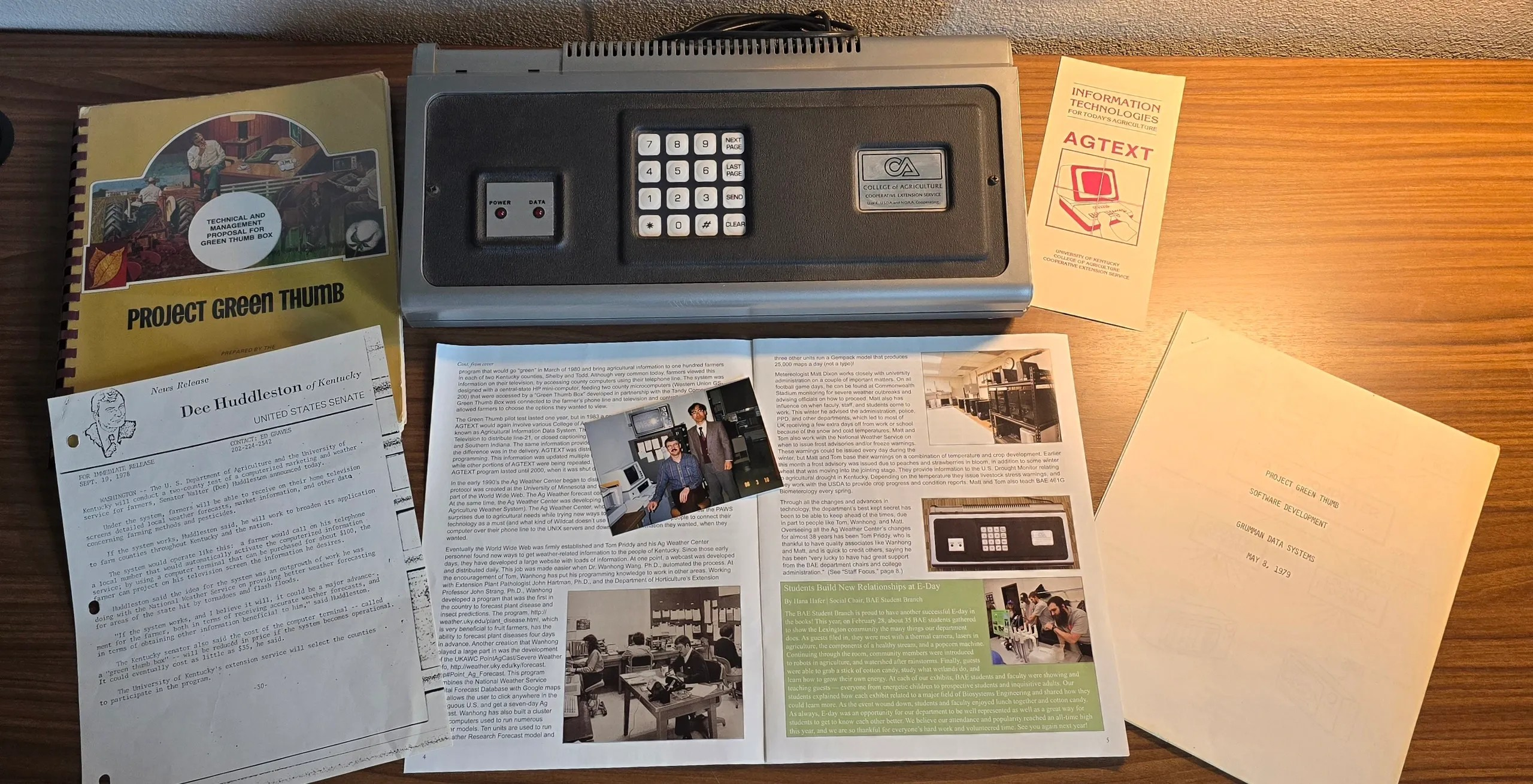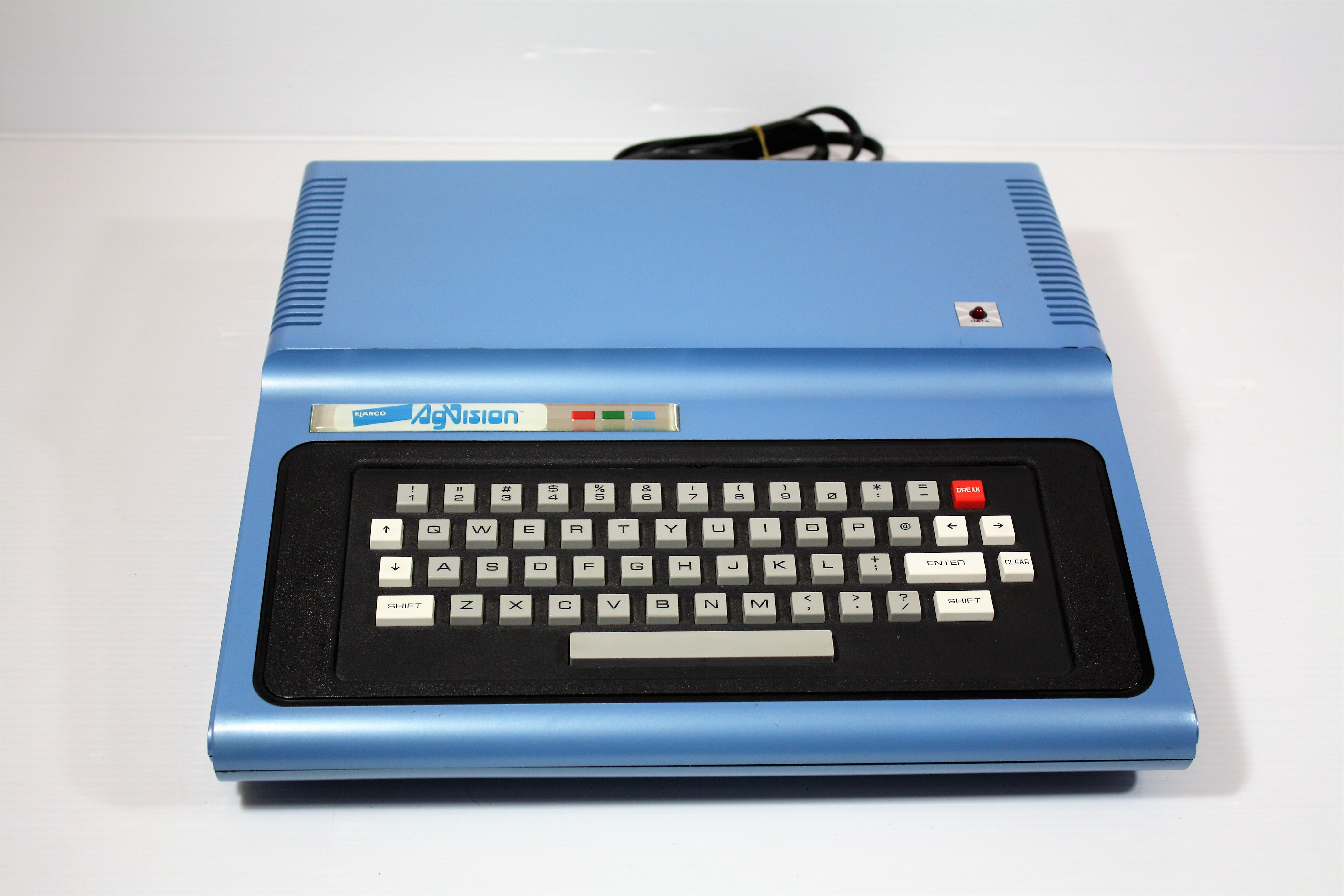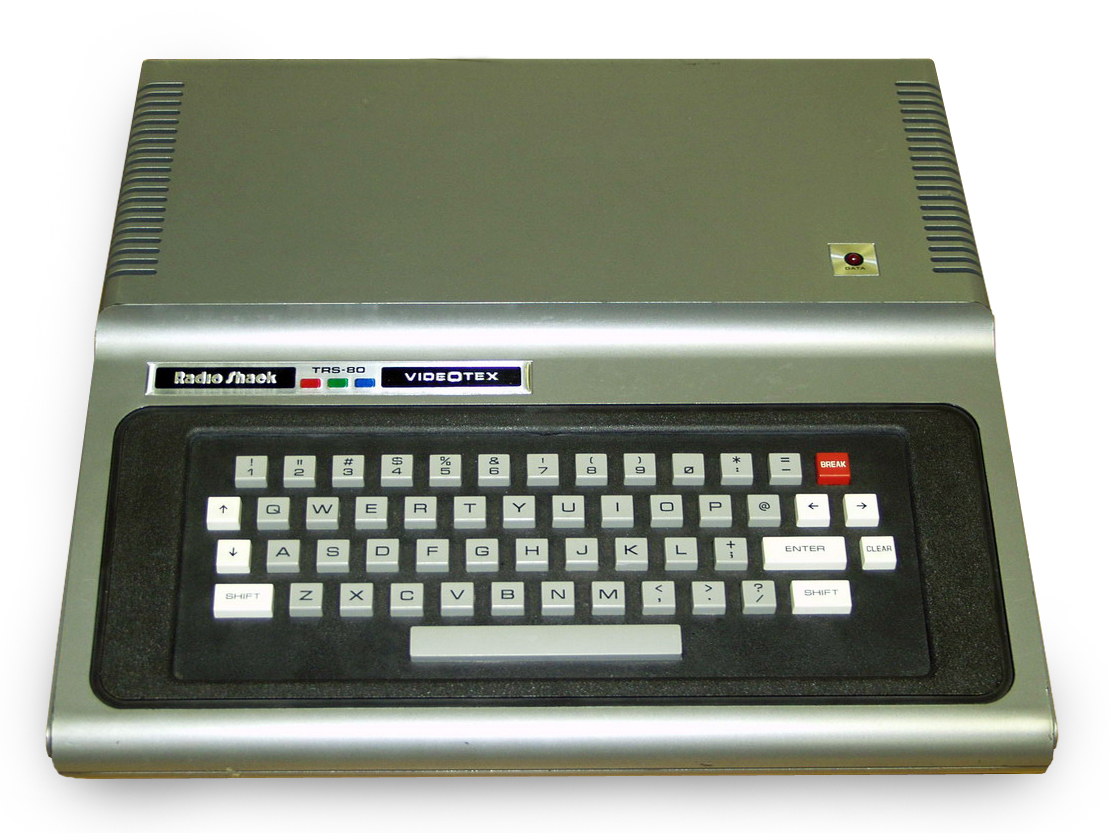Tandy in the Dell
The TRS-80 Color Computer started off as a low-cost Videotex terminal project that Motorola and the Tandy Corporation teamed up to
produce in 1977. Called "Green Thumb" in development, its goal was to be friendly for people in the agricultural industry that
needed to run day-to-day operations on their farms. Too many chips were used in the prototype that was developed, so it needed to
be redesigned.

Meanwhile, Motorola had finished work on their new MC6809E processor. So, along with the Synchronous Address Multiplexer (SAM) and
Video Display Generator (VDG) chips, they used it to develop the AgVision terminal in late 1979 (look at the pretty sky-blue). The
next year, it was sold as the Videotex terminal which features modem inputs to connect a telephone cord to. It's worth mentioning
that the LED light on top of both versions is not a power light, but rather indicates if data is being transmitted, hence the "DATA"
label. Differences the Videotex had from the AgVision include the removal of the internal modem and the addition of the cassette,
serial, and joystick ports. Plus, there's an expansion port for "Program Paks" or cartridges with games or programs on them.


Color Me Coco-a
Then, on July 31, 1980, the TRS-80 Color Computer was announced. It was initially to come with 4 KB of DRAM and an 8 KB BASIC ROM
interpreter for $399. Two months later, Radio Shacks nationwide started receiving the new computer for sale to consumers. One thing
I never realized until recently is that the official name, the TRS-80 Color Computer, is partially wrong. Like its similar
agricultural siblings, it ran on a 6809. The monochrome business machines that preceded them ran on a Z80, where the name came from.
As such, internally, the Color Computer was known as the TRS-
90 for the "9" in 6809. But nevertheless, Radio Shack sold it
under the TRS-80 name despite the discrepancy. It's just as well, as people call it the "CoCo", Tandy Color Computer, or Color
Computer since it rolls off the tongue better. Also, despite the similar name, the monochrome machines' software is not compatible
with the Color Computer.

There's very little information on how many Tandy Color Computers were sold by its discontinuation in 1983. But apparently, it was
enough for Radio Shack to develop a second model that year...




